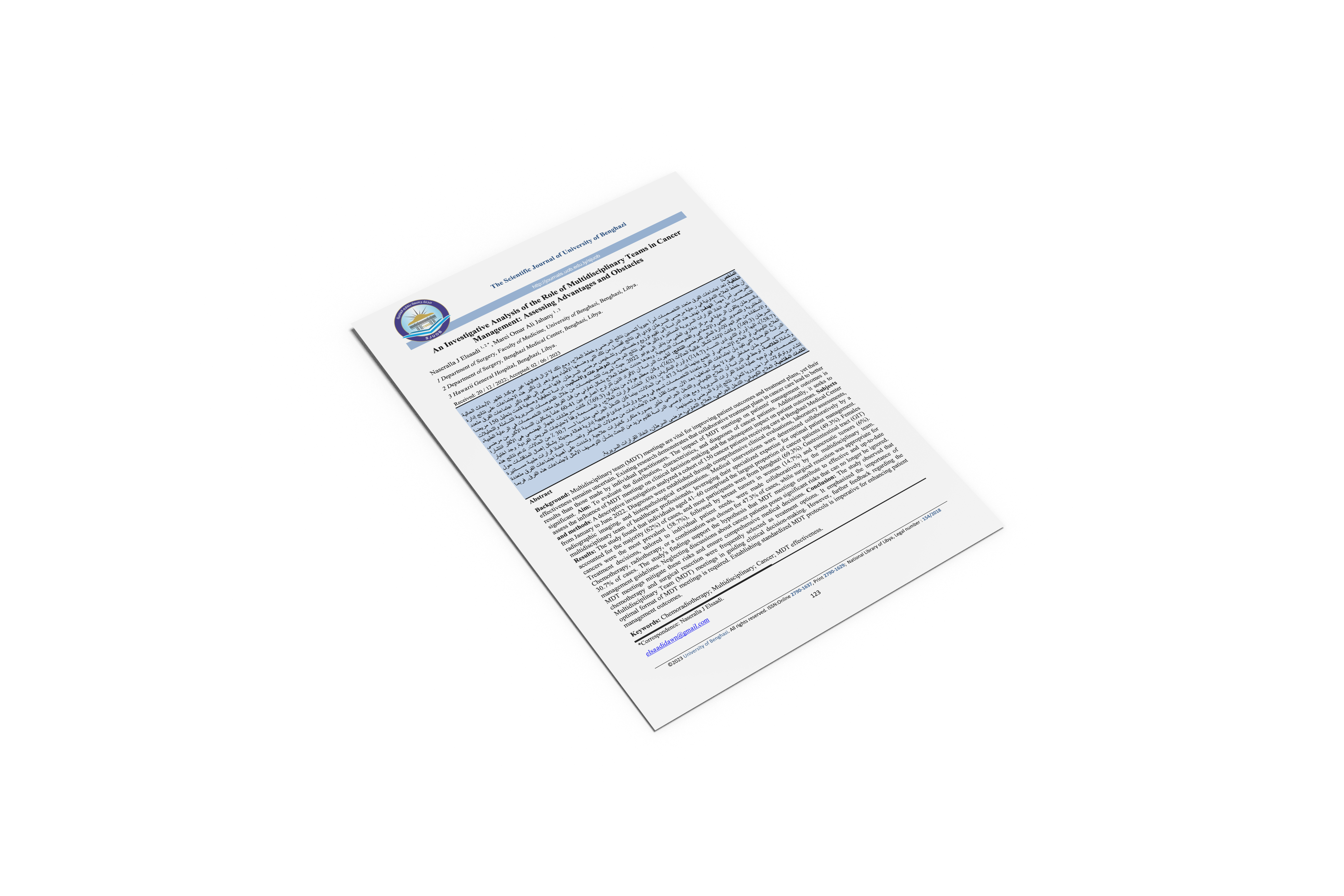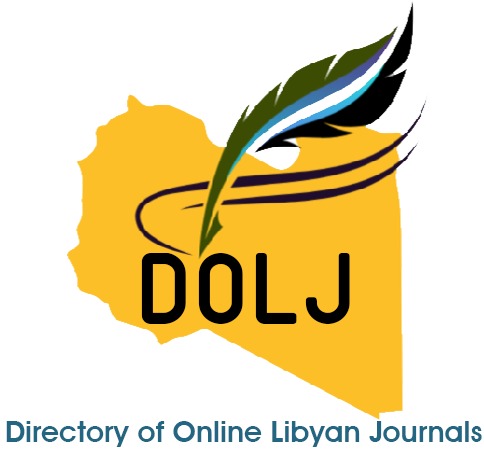An Investigative Analysis of the Role of Multidisciplinary Teams in Cancer Management: Assessing Advantages and Obstacles
DOI:
https://doi.org/10.37376/sjuob.v36i1.3940Keywords:
Chemoradiotherapy, Multidisciplinary, Cancer, MDT effectivenessAbstract
Background: Multidisciplinary team (MDT) meetings are vital for improving patient outcomes and treatment plans, yet their effectiveness remains uncertain. Existing research demonstrates that collaborative treatment plans in cancer care lead to better results than those made by individual practitioners. The impact of MDT meetings on patients' management outcomes is significant. Aim: To evaluate the distribution, characteristics, and diagnoses of cancer patients. Additionally, it seeks to assess the influence of MDT meetings on clinical decision-making and the subsequent impact on patient outcomes. Subjects and methods: A descriptive investigation analyzed a cohort of 150 cancer patients receiving care at Benghazi Medical Center from January to June 2022. Diagnoses were established through comprehensive clinical evaluations, laboratory assessments, radiographic imaging, and histopathological examinations. Medical interventions were determined collaboratively by a multidisciplinary team of healthcare professionals, leveraging their specialized expertise for optimal patient management. Results: The study found that individuals aged 41–60 comprised the largest proportion of cancer patients (49.3%). Females accounted for the majority (62%) of cases, and most participants were from Benghazi (69.3%). Gastrointestinal tract (GIT) cancers were the most prevalent (58.7%), followed by breast tumors in women (14.7%) and pancreatic tumors (6%). Treatment decisions, tailored to individual patient needs, were made collaboratively by the multidisciplinary team. Chemotherapy, radiotherapy, or a combination was chosen for 47.3% of cases, while surgical resection was appropriate for 30.7% of cases. The study's findings support the hypothesis that MDT meetings contribute to effective and up-to-date management guidelines. Neglecting discussions about cancer patients poses significant risks that can no longer be ignored. MDT meetings mitigate these risks and ensure comprehensive medical decisions. Conclusion: The study observed that chemotherapy and surgical resection were frequently selected as treatment options. It emphasized the importance of Multidisciplinary Team (MDT) meetings in guiding clinical decision-making. However, further feedback regarding the optimal format of MDT meetings is required. Establishing standardized MDT protocols is imperative for enhancing patient management outcomes.
Downloads

Downloads
Published
How to Cite
Issue
Section
License
Copyright (c) 2023 The Scientific Journal of University of Benghazi

This work is licensed under a Creative Commons Attribution-NonCommercial-NoDerivatives 4.0 International License.


















